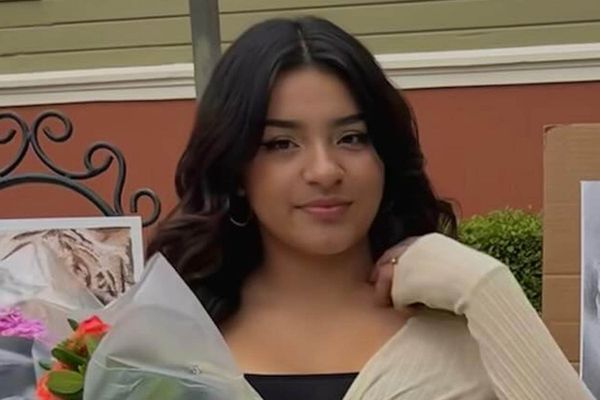By the time you get to Phoenix you may not need a driver's license.
That's because Waymo, Alphabet's (GOOGL) self-driving division, has its driverless vehicles picking up passengers in the desert city's downtown.
Kate Gallego, the mayor of Phoenix, went for a ride in one of the Waymo-mobiles and tweeted all about it.
"I had the opportunity to take my first rider only trip with the #WaymoDriver,@Waymo’s fully autonomous driving technology," Gallego said on Aug. 29. "Phoenicians, I can’t wait for you to experience it for yourselves!"
Gallego also tweeted out a video link of her autonomous experience as the vehicle tools around town with nobody at the wheel.
"I enjoyed trip through downtown very much," Gallego said in the video. "I'm excited to have an advanced technology that is clean and sustainable...this is the future technology and the future is here right now in Phoenix."
Waymo began deploying its technology in the East Valley of Phoenix, starting with its Early Rider Program--now called Trusted Tester--in 2017, followed by fully autonomous public rides in 2020.
In March, Waymo said it had expanded its autonomous vehicle project to the streets of San Francisco.
Meanwhile, Tesla (TSLA) CEO Elon Musk doubled down Aug. 29 on comments made at the company's annual meeting earlier this year that Tesla should be able to offer full self-driving "to anyone who requests it by the end of the year."
Musk told an energy conference in Norway he is focused on getting self-driving in wide release, subject to regulatory approvals, and on getting SpaceX's giant new Starship into orbit by the end of the year, Reuters reported.
Full Self-Driving
The company's current full self-driving package, or FSD, currently costs $12,000, but will go for $15,000 as of Sept. 5.
The system allows the vehicle to autonomously stop at stop signs, park, react to traffic while in cruise control, and steer on both freeways and city streets, according to the company.
The updated version would allow vehicles to drive on their own, no human occupant required.
Musk has been a big booster of autonomous vehicles, saying in January during Tesla's fourth-quarter earnings call that "I would be shocked if we do not achieve full-self-driving safer than a human this year."
In May, the Chinese tech giant Baidu (BIDU) said it had received the first-ever regulatory approval in China that enables the company to provide driverless passenger rides to the public on open roads in Beijing.
Safety Concerns
And, on Aug. 26, the country's Ministry of Transport said that more than ten cities in China have approved commercial trials of autonomous vehicles, inclusive of taxis and urban buses.
As autonomous vehicles move closer to reality concerns about safety are increasing.
In 2018, Elaine Herzberg was killed when she was she was struck by a self-driving Uber test vehicle in Tempe, Az. The driver was charged with negligent homicide.
Tesla's program has come under fire from the Dawn Project, a safe-technology campaign group.
In a commercial broadcast on TV stations across the country, the group's founder, Dan O'Dowd, claims claims that FSD "is the worst commercial software I’ve ever seen”.
O'Dowd charged in a tweet that "our new safety test of @ElonMusk's Full Self-Driving Teslas discovered that they will indiscriminately mow down children."
Tesla responded by sending O'Down a cease-and-desist letter on Aug. 11.
Cease and Desist
The letter said that O'Dowd and The Dawn Project "continue to spread misinformation about Tesla, by falsely claiming that Tesla’s FSD (Beta) technology will not recognize children and by falsely stating that the feature will run over children when it is engaged."
Since 2016, the National Highway Traffic Safety Administration (NHTSA) has investigated 30 crashes involving Teslas equipped with automated driving systems, 19 of them fatal.
The Insurance Institute for Highway Safety (IIHS) issued a report on Aug. 30 on a nighttime test of pedestrian automatic emergency braking (AEB) systems, which are an important feature of autonomous vehicles.
The group said the test of 23 midsize cars, midsize SUVs and small pickups found more than half earned a basic score or no credit.
"As we expected, most of these pedestrian AEB systems don’t work very well in the dark,” IIHS President David Harkey said in a statement. “But it’s clear automakers can rise to this new challenge, as Ford, Nissan and Toyota each earn superior ratings for some models.”
'Don't Write it Off'
In addition, a British organization, IAM RoadSmart, said that research conducted with Southampton University, "shows that there could be an over-reliance on self-driving technology, particularly when control is switched between the vehicle and the driver."
The group said coaching "was clearly shown to deliver safer drivers in simulator studies" and urged car makers and government "to educate drivers about the capabilities of the technology, to help them understand that they still must pay attention."
In May 2021, Fox 10 Phoenix reported that a Waymo taxi went rogue near a construction site in Chandler, Az. after apparently getting confused with traffic cones blocking a lane.
The wayward Waymo bolted from a support crew that tried to stop it.
However, despite his ordeal, Joel Johnson, the passenger, defended autonomous vehicles.
"I have over 1,000 miles in these cars and I still feel safe, so don’t write it off just cause of one thing like this," he said.







